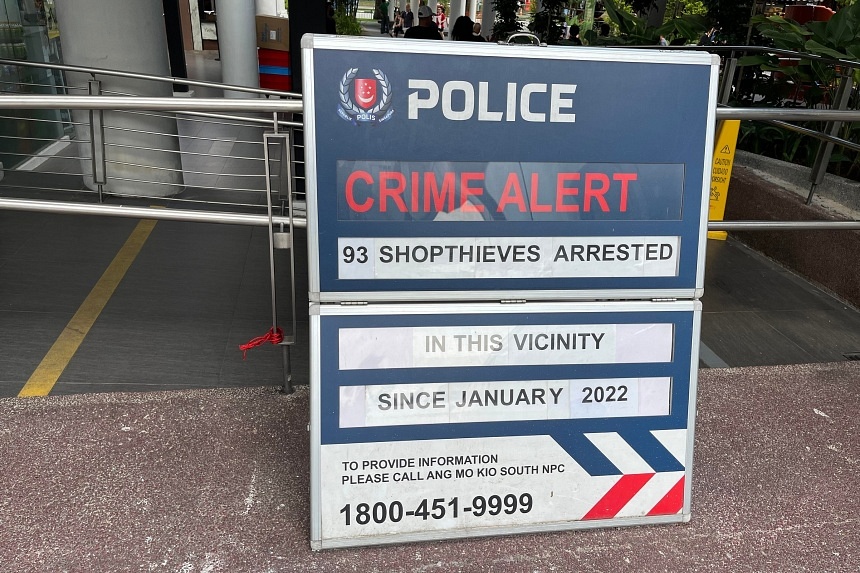SINGAPORE – The top three offences committed by young people here in 2023 were shop theft, cheating and related offences, and sexual offences involving penetration.
A total of 509 youth offenders – defined as between the ages of 10 and below 21 – committed shop theft, followed by 422 in the same age group that engaged in cheating and related offences, the majority of which was associated with scams and cybercrime.
There were 250 youth who committed sexual offences involving penetration.
These trends were captured in the Ministry of Social and Family Development’s (MSF) first Supporting Youth Rehabilitation Trends Report released on Nov 8. The report provides an overview of the key youth rehabilitation and offending trends from 2019 to 2023.
Those aged 16 to below 18 had the highest likelihood of offending, compared with older youth aged 18 to below 21 or those in the younger range, from 10 to below 16.
To support this group, the Children and Young Persons Act (CYPA) was amended to allow cases involving older youth offenders aged 16 to below 18 to be heard in the Youth Court. The change will take effect from Jan 1, 2025, said MSF in a statement on Nov 8.
Currently, the Youth Court only hears cases involving young offenders below the age of 16. Those aged 16 and above are tried as adults in the State Court or the Community Court, unless they are diverted away from the criminal justice system.
“The intent of this amendment is to ensure that these older youth offenders receive age-appropriate rehabilitation, as they may lack the cognitive maturity to understand the seriousness of committing offences,” said an MSF spokesman.
Correspondingly, the maximum age limit for detention in a place of detention and Juvenile Rehabilitation Centre, such as the Singapore Boys’ Home, will be raised to 21 years of age, as a Juvenile Rehabilitation Order can last up to three years.
The ministry noted that to maintain public safety and crime deterrence, older youths who commit more serious crimes, such as certain sexual offences, unlicensed moneylending and drug trafficking, may face proceedings in the State Courts.
The amendment will potentially expand rehabilitation to about 50 youth offenders aged 16 to below 18 years by end 2025, to better provide age-appropriate support catered to their specific risks and needs.
MSF said it has made infrastructural adjustments to accommodate older youth in the Singapore Boys’ Home and the Singapore Girls’ Home, recruited and upskilled staff, and worked with educational institutions to expand academic and vocational offerings to the residents.
The report said Singapore’s youth offending rate has remained low at an average of 5.2 per 1,000 youths from 2019 to 2023, compared to 7.6 per 1,000 children in New Zealand and 2.8 per 1,000 persons in Japan.

